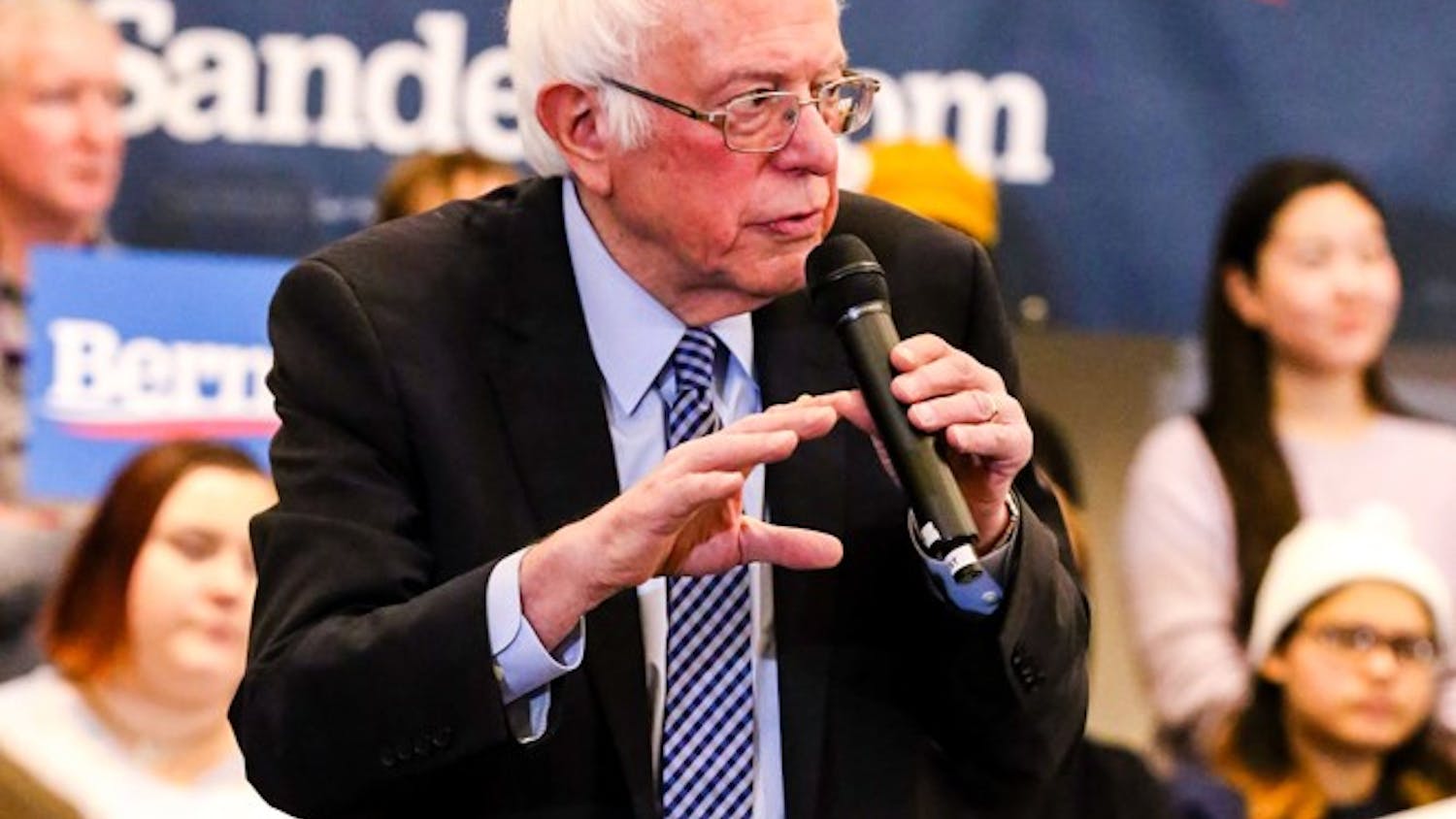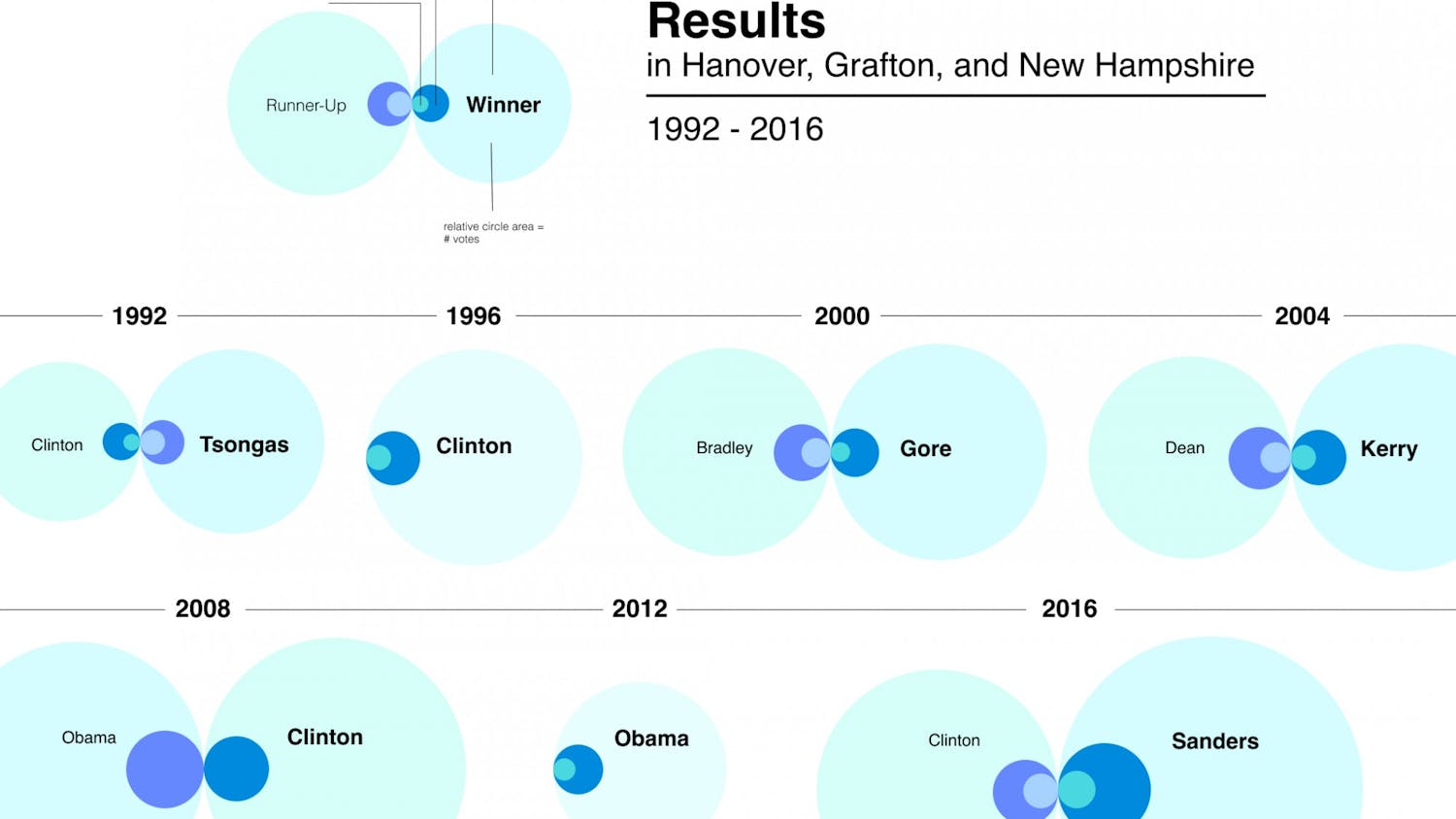If the polls are any indication, Bernie Sanders is surging. He lost the Iowa caucuses by a razor-thin margin against Pete Buttigieg and did very well in New Hampshire.
Just a few years ago, Sanders was a relative nobody. He was a political outsider — he passed very little significant legislation, and his role was mostly confined to an ideologue castigating the Democratic Party as “ideologically bankrupt” while Democratic legislators bypassed him and took real, actionable steps to improve the lives of Americans.
But then came 2016. Sanders ran an insurgent campaign against that most establishment of establishment candidates, Hillary Clinton. And granted, there was a lot to like about Sanders. He presented a message of progress and change, which, to many Americans fed up with the status quo, had a clear appeal.
But don’t forget what Sanders did once it became clear that Clinton would secure the nomination. He stayed in the race and continued to criticize the presumptive nominee, to the benefit of no one but Donald Trump.
Even once Sanders endorsed Clinton, a faction of his diehard supporters started the “Bernie or Bust” movement and refused to vote for Clinton in the general election. In Pennsylvania, Michigan and Wisconsin, Trump’s margin of victory was smaller than the number of Sanders’ primary voters who refused to back Clinton in the general election. And if those three states had gone Democratic, Clinton would have won the election.
And now in 2020, Sanders is back. He’s a popular choice at Dartmouth — in a pre-election poll by The Dartmouth, he maintained a statistical tie for first with Buttigieg among students voting in the New Hampshire Democratic primary.
Nationally, Sanders isn’t very popular. His core group of partisans back him vehemently, but he still averages at just 23 percent support in the Democratic primary. He proudly and frequently proclaims himself a “democratic socialist” — an interesting strategy, given that a Tuesday Gallup poll showed that 53 percent of Americans would refuse to vote for their party nominee who was a “generally well-qualified person for president who happened to be socialist.” Sanders’ use of the “socialist” label presumably gives him some cache among those who style themselves radicals — and let’s leave out that fact that he’s quite clearly a social democrat, not a socialist — but for most Americans, the term “socialism” is electoral poison. Sanders has always sat on one extreme of American politics, and he isn’t especially popular, even among Democrats.
So why then is Sanders the current Democratic frontrunner? The answer seems to lie — as it did with Trump in 2016 — with the fractured nature of the rest of the field. The Democrats have Joe Biden, Buttigieg and Amy Klobuchar all running within spitting distance of one another as mainline liberals. Add to that Elizabeth Warren with her progressive campaign and Michael Bloomberg with his wealth-fueled attempt to supplant Biden and you’ve got a crowded, fractured field. And there’s only one victor from that division, just as there was only one victor from the GOP’s 2016 chaos: the candidate at the extreme.
Democrats have a choice to make. We can remain divided and inevitably nominate Sanders, an unpopular candidate with little chance of success against Trump. Spin whatever fiction you will about how Sanders is somehow electable — if you want the facts, look at the British Labour Party’s recent disastrous electoral defeat, a defeat many attribute to the party’s nomination of the far-left Jeremy Corbyn as leader. Corbyn sparked all sorts of enthusiasm and came out with the same bold claims as Sanders of rallying non-voters into supporting him — only for Labour to suffer its worst defeat in over 80 years.
So Democrats, let’s not repeat the same mistake that the Republicans made in 2016. The GOP failed to stop an extremist who barged into the party from the outside — and now that extremist has seized control of the party. The party of John McCain and George H.W. Bush now sells T-shirts showing Greenland as the 51st state, a reference to Trump’s ham-fisted attempt to buy the Arctic nation from Denmark.
In the wake of Trump, the GOP has become a cheap parody of itself. Republicans might have been able to stop Trump during the primary, but they became bogged down in internecine battles and division as Trump rode the wave to victory.
Let’s allow the next two weeks to play out. New Hampshire and Iowa are hardly representative demographically, and other states won’t experience the same intensity of campaigning that we have here. But once Nevada and South Carolina have voted, it’s time for Democrats to take stock.
Perhaps Buttigieg will ride the momentum from Iowa and New Hampshire, or Klobuchar will rise in the polls after her promising performance in the Granite State. There’s always the possibility that Warren will capture the left-leaning voters who aren’t comfortable with Sanders’ lack of pragmatism. And don’t count Biden out — he’s still polling well ahead in South Carolina, and he has decades of political experience.
Yes, there are differences between these candidates. But before Super Tuesday, it’s time for the Democrats to pick one. Hopefully, the votes in Nevada and South Carolina make that choice an obvious one, but even if not, it’s imperative that Democratic voters throw their weight behind one candidate. Otherwise, we’ll let our marginal differences divide us as Sanders — who isn’t a Democrat at all — uses the primaries to seize control for his own minority faction. We’ll then have a 2020 race between two demagogues on the extremes, and with only one guaranteed loser: all of us. Sanders may be preferable to Trump, but a vote for either is a vote for four more years of division, turmoil, populism and resentment.
What our country needs isn’t ideological purity. What our country needs is real, concrete change that matters to everyday Americans. There are many promising Democratic candidates who offer just that. If we want to end the partisanship and division that so often characterize our politics, it’s our duty to put aside our personal favorites and unite behind a candidate who can win.



